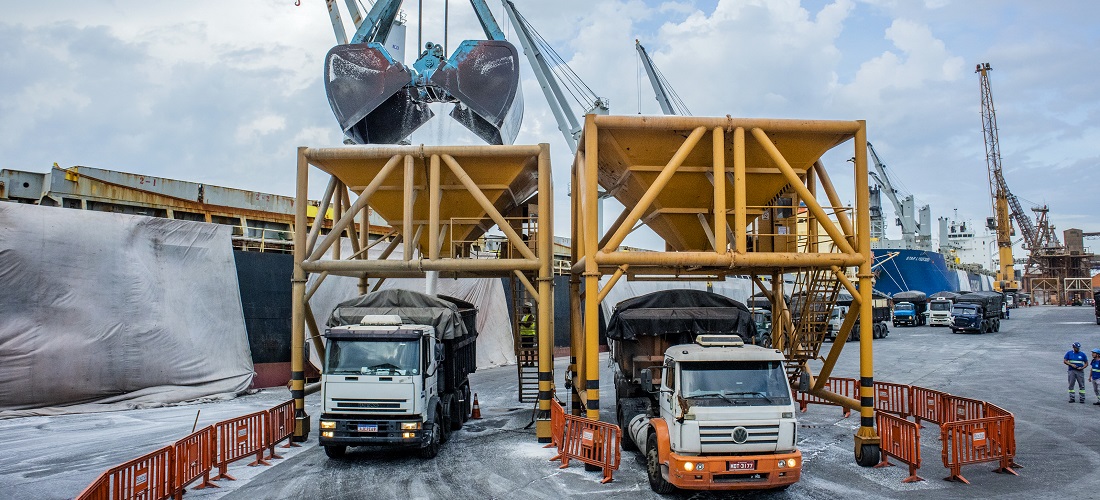
BP Bunge invests in fertilizer plant
May, 20, 2024 Posted by Gabriel MalheirosWeek 202421
To make better use of sugarcane byproducts and save on chemical usage, the sugar-energy company BP Bunge Bioenergia invested R$22 million in constructing its first liquid fertilizer plant to meet the company’s demand for the input. The unit, located at the Moema plant in Orindiúva (state of São Paulo), was inaugurated this week.
In addition to liquid foliar fertilizers, the factory will enrich the vinasse produced as waste from the processed sugarcane. This residue will be returned to the field as a source of potassium for the sugarcane fields. Initially, these fertilizers will not be sold on the market.
Rogério Bremm, BP Bunge’s agricultural director, told Valor that the company plans to build two more plants: one in Minas Gerais and another in Goiás. “They will be similar projects and should require the same investment as the first plant,” he said.
The executive recalls that performance improvement master plans have been developed since BP Bunge was created in December 2019. “One of these plans included maximizing the use of our sugarcane by-products.”
In 2021, BP Bunge began planning to build a fertilizer factory to serve the group. The idea was to move toward regenerative agriculture, reusing waste and replacing chemical products.
The international context of the following years accelerated the process. In 2022, Russia’s invasion of Ukraine—two important global fertilizer suppliers—led to a sharp rise in input prices. BP Bunge’s construction in Orindiúva began in 2023.
“This harvest, 5 million liters of foliar fertilizer will be produced,” Mr. Bremm estimated. The products are organo-mineral, as they contain a mixture of chemical inputs, and generate productivity gains for sugarcane plantations.
According to Mr. Bremm, foliar fertilizers are used as nutritional supplements containing macro- and micronutrients. Together with biostimulants and biological inputs, they form a technology with the potential to generate an average increase of eight to 10 tonnes per hectare in crops.
“On this front, the volume produced at the new plant will be able to meet the demand of seven of the company’s 11 plants in the country, covering a total of 300,000 hectares,” he said.
Vinasse production, in turn, is expected to serve the company’s 45,000 hectares distributed at the Moema and Guariroba plants in Pontes Gestal (state of São Paulo). These two plants will also be supplied with foliar fertilizer.
According to Mr. Bremm, the company assesses that the byproduct not only increases the longevity and productivity of the cane field but also protects the quality of the soil.
The factory’s operation is 100% automated, a factor considered by the executive to be a market differentiator since it enables a high volume of production due to the process’s precision levels.
BP Bunge also expects its own fertilizer production to reduce the company’s costs since the new operation eliminates the expenses of diluting and transporting inputs bought from external suppliers. According to the executive, savings in this regard are estimated at up to 40%.
“We’re rationalizing our byproduct as much as possible, stopping importing potassium chloride, using urea, and using vinasse and bacteria for biological fertilization. We’re replacing major expenditure items,” informed Mr. Bremm.
With the reduction in these costs, the company intends to invest more in boosting the biostimulation process of sugarcane plantations through the use of foliar fertilizers produced in-house.
Translation: Melissa Harkin, CT
-
Trade Regulations
Aug, 12, 2021
0
Chamber committee approves proposal that extends “drawback” concessions to exporters for one year
-
Meat
Aug, 04, 2023
0
Beef shipments in July are lowest since 2019
-
Ports and Terminals
Sep, 02, 2020
0
Ibama launches operation to investigate abandoned cargo at Santos
-
Dec, 01, 2021
0
Brazil registers US$1.3 billion trace deficit in November

